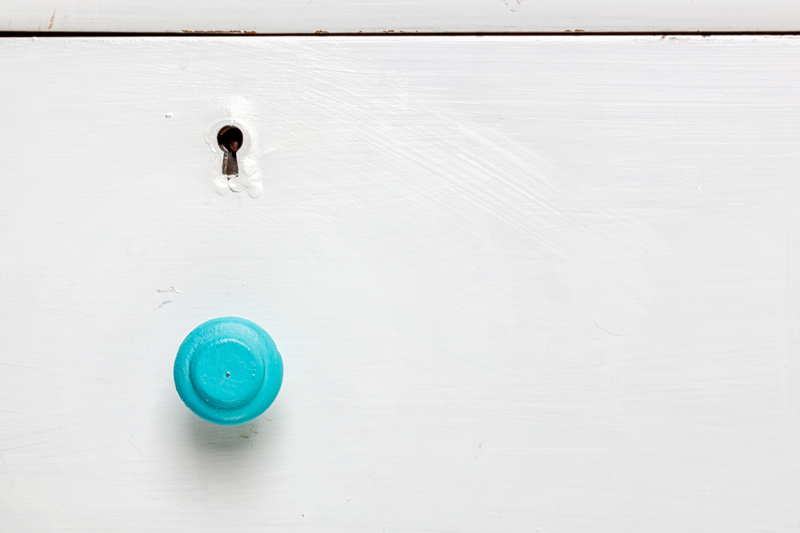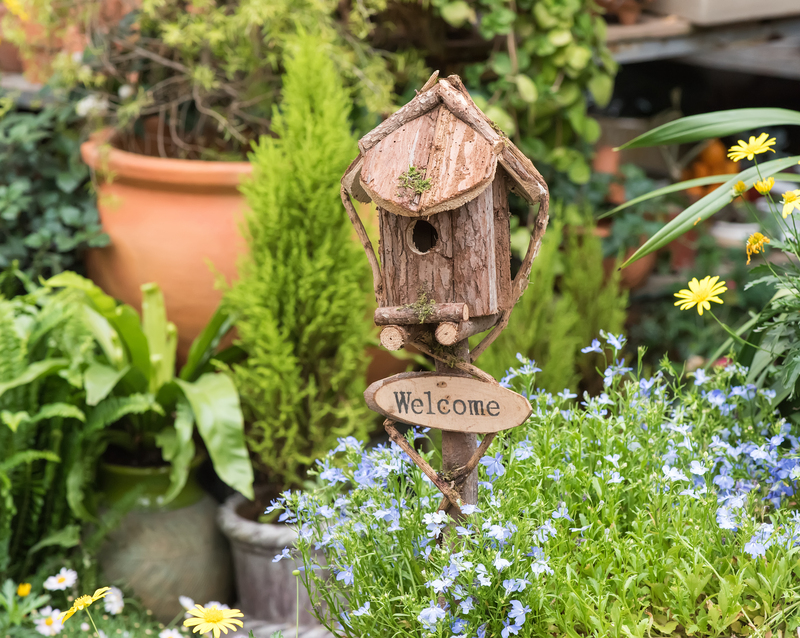Maximize Your Recycling Potential at Home with These Tips
Recycling has never been more essential than it is today. As landfills overflow and environmental concerns become increasingly urgent, making every effort to maximize your recycling potential at home is both responsible and rewarding. Whether you're a seasoned eco-warrior or just starting your journey toward a zero-waste lifestyle, these comprehensive tips will empower you to step up your home recycling game.
Why Maximizing Your Home Recycling Matters
Every item you recycle reduces the demand for raw materials, conserves energy, and helps cut back on pollution. In fact, maximizing your household recycling efforts can have a ripple effect--encouraging your family, neighbors, and friends to do the same. But true impact goes beyond tossing cans into a bin; it's about making smarter, more intentional choices every day.
- Conserves natural resources like timber, water, and minerals
- Reduces greenhouse gas emissions associated with manufacturing
- Minimizes landfill waste and the harmful chemicals it produces
- Saves energy compared to producing goods from virgin materials
- Helps create jobs within the recycling and manufacturing industries

Step-by-Step Tips to Boost Your Home Recycling Potential
1. Get to Know Your Local Recycling Program
Every city and town has its own rules for recycling. The first step to maximizing your home recycling is understanding what materials are accepted in your area, as some places recycle only specific types of plastics or prohibit certain items entirely.
- Visit your municipality's website for detailed guidelines
- Print out or bookmark the list of accepted recyclables
- Look up special drop-off points for electronics, hazardous waste, or bulky items
2. Set Up an Efficient Recycling Station
An organized, accessible recycling area is key to sustained success. Maximize your recycling at home by making it as convenient as possible.
- Place recycling bins next to your regular trash cans
- Label bins for different materials (plastic, paper, metal, glass)
- Use bags or additional containers for "special" recyclables such as batteries or textiles
3. Rinse and Prep Recyclables Properly
Food residue can contaminate recyclable items, sending entire loads to the landfill--one of the most common recycling mistakes.
- Rinse jars, bottles, and cans before tossing them in the bin
- Flatten cardboard boxes to save space and ensure thorough processing
- Remove caps or lids if required by your local program
By consistently prepping items properly, you support a cleaner, more effective recycling process.
4. Understand What Shouldn't Go in the Recycling Bin
Wishful recycling does more harm than good. Some common items--like greasy pizza boxes, plastic bags, and styrofoam--cannot be processed in standard curbside recycling.
- Avoid putting food-soiled papers and containers in your recycling bin
- Check for recycling symbols and local guidance before recycling unfamiliar plastics
- Drop plastic bags and film at grocery store collection bins instead of curbside bins
5. Buy Products Made from Recycled Materials
Boost your home recycling potential by supporting the market for recycled goods. Many everyday products--paper towels, packaging, even clothing--are now made from post-consumer materials.
- Look for packaging labeled "Made from recycled content"
- Choose refillable, reusable, or compostable options when possible
- Let manufacturers know you prefer sustainable products
6. Reduce & Reuse Before You Recycle
The three Rs--Reduce, Reuse, Recycle--are listed in order for a reason! Prioritizing reduction and reuse can greatly amplify the impact of your efforts.
- Opt for products with minimal or recyclable packaging
- Repurpose glass jars, plastic containers, or fabric bags around the house
- Buy second-hand whenever feasible
Remember: The best waste is no waste at all.
Advanced Strategies to Maximize Your Home Recycling
1. Compost Food Scraps and Yard Waste
Organic waste makes up a significant chunk of household trash. Composting not only recycles nutrients back into the earth but also reduces landfill methane emissions.
- Set up a backyard compost bin or join a community compost program
- Compost coffee grounds, fruit/vegetable peels, eggshells, and yard trimmings
- Avoid composting meats, dairy, or oils to prevent odors and pests
With proper composting, you can maximize your recycling potential beyond just cans and bottles.
2. Safely Recycle Electronics and Hazardous Waste
Old electronics and hazardous materials like paints, oils, or chemicals should never go in the regular trash. Many communities offer periodic e-waste and hazardous waste collection events.
- Keep old phones, batteries, and chargers in a separate container for proper recycling
- Find specialized drop-off centers or retailer take-back programs
- Check local schedules for annual hazardous waste collection days
3. Recycle Clothing, Shoes, and Textiles
Did you know that most textiles are recyclable, even if they're not suitable for donation? Textile recycling can divert tons of fabric from landfills every year.
- Drop used clothing and shoes at textile recycling points or charity shops
- Repurpose old clothes as cleaning rags or DIY crafts
- Participate in brand take-back schemes for worn-out apparel
4. Upcycle Creatively
Upcycling means turning waste materials into new, useful products--think wine bottle vases or pallet garden planters. It's not just environmentally friendly; it's fun and creative, too!
- Use glass jars as organizers or candle holders
- Transform old T-shirts into tote bags
- Involve your family in craft projects that give items new life
Making upcycling a regular habit can significantly boost your home recycling rate.
Common Home Recycling Mistakes to Avoid
Even the most enthusiastic recyclers aren't immune to mistakes! Avoid these frequent pitfalls to truly maximize your recycling at home:
- Bagging recyclables: Most curbside programs require loose items, not bagged, to streamline sorting.
- Recycling non-recyclable plastics: Only certain types of plastic are accepted. Check the resin identification code and local policies.
- Ignoring contamination: Food or liquid residue can spoil entire bins--wash everything before recycling.
- Omitting small metals: Aluminum bottle caps and tin foil are recyclable, but often overlooked.
- Missing special collections: Electronics, batteries, and hazardous waste have separate protocols--never place them in curbside bins.
Innovative Tools to Maximize Home Recycling Potential
Smart Recycling Bins
There's a new wave of smart home technology designed to make maximizing your recycling easier. Smart bins can sort, compact, and even track your recycling data.
- Some bins use sensors to identify recyclables vs. trash
- App integration allows you to monitor your recycling habits
- Some compactors help save space and reduce bin emptying frequency
Recycling Apps
Not sure if something is recyclable? Numerous mobile apps and online tools can help.
- Scan barcodes to see if packaging is locally recyclable
- Access digital recycling guides and reminders
- Connect with local recycling schedules and drop-off sites
Embracing technology can take your recycling-from-home routine to the next level!
Teaching Kids to Recycle: Planting Seeds for the Future
Maximizing recycling potential is a family affair. Teaching children about recycling helps build lifelong environmentally conscious habits.
- Make recycling a game or contest
- Read children's books about sustainability together
- Let kids decorate and label recycle bins
- Explore creative upcycling and DIY projects as a family
By including children in your home recycling system, you're setting a lasting example of caring for the planet.

Frequently Asked Questions: Home Recycling Maximized
- What do the recycling numbers on plastics mean?
These identify the type of plastic. Most curbside programs accept #1 (PET) and #2 (HDPE). Always consult your local guidelines. - Are pizza boxes recyclable?
Only if they're free from food residue or grease. Compost soiled portions and recycle the clean ones. - How can I recycle electronics?
Use dedicated e-waste drop-off centers or special collection events--never put electronics in your curbside recycling. - Can you recycle plastic bags?
Most curbside programs do not accept plastic bags, but many grocery stores have bag-recycling bins. - Is shiny or glittery gift wrap recyclable?
No--stick with plain, paper-based wrap for recycling.
Conclusion: Turn Your Home into a Recycling Champion
Maximizing your household recycling potential is an ongoing, incremental process. By getting organized, staying informed, and making daily choices that prioritize sustainability, you can make a real difference. Remember: It's not just about tossing items in a bin--it's about cultivating habits that protect our planet for generations to come.
Now is the perfect time to evaluate your at-home recycling system. Commit to these tips, involve your family, and lead your community by example--every recycled item counts toward a greener, cleaner world.